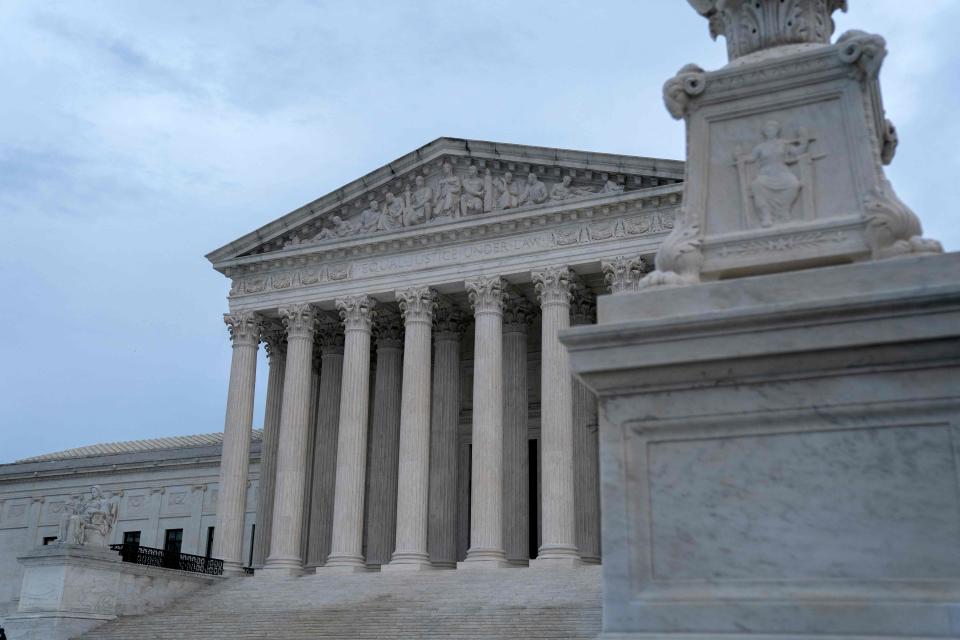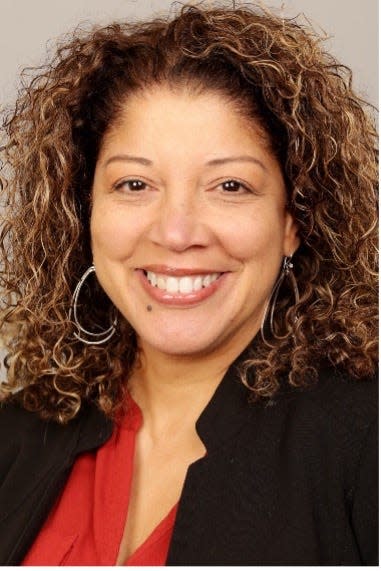Will the Supreme Court end affirmative action in college admissions? It doesn't look good.
- Oops!Something went wrong.Please try again later.
On Monday, the U.S. Supreme Court will consider whether race-conscious admissions procedures in higher education violate the Constitution and federal law. The oral arguments will take place on Halloween.
We certainly didn’t need another sign that things were looking bad; the potential outcome in the new conservative court is scary enough.
The two cases, Students for Fair Admissions v. Harvard and SFFA v. University of North Carolina, are likely to define the court’s new term in the worst possible way. The cases raise serious doubts about the future of race-conscious admissions, commonly referred to as affirmative action, in higher education.
What is SCOTUS deciding?
Specifically, the court is poised to strip hundreds of colleges and universities of the ability to take an individual’s race into account, in any way, in the admissions process. David Cole, legal director of the ACLU, has said that the damage to diversity efforts could be “earth shattering” if the court bans the consideration of race as one of many factors colleges consider in admissions.
In the lawsuits, Students for Fair Admissions, an anti-affirmative action group, has sued Harvard and UNC for allegedly discriminating against Asian Americans (at Harvard) and white students (at UNC). The court is likely to reach a decision by June.
Halloween is only one day: Trick-or-treating MUST happen on Oct. 31, and six other rules from the King of Halloween
There are several reasons to be concerned that the court will overturn protections for race-conscious admissions. The new court is overwhelmingly conservative and likely doesn’t have enough moderate justices to preserve affirmative action.
Chief Justice John Roberts has long been skeptical of such initiatives. In 2016, Justice Clarence Thomas asserted in Fisher v. University of Texas that the use of race in admissions violates the equal protection clause. Further, this court just demonstrated in Dobbs v. Jackson Women’s Health Organization that it is willing to undo decades of precedent.
The ruling on Monday's cases will likely reverse 40 years of legal precedent that protected race-conscious admission procedures in higher education. The practices merely consider race as one of several factors that admissions committees use to conduct a holistic assessment of applicants.
Opinion alerts: Get columns from your favorite columnists + expert analysis on top issues, delivered straight to your device through the USA TODAY app. Don't have the app? Download it for free from your app store.
What is a race-based admissions policy?
These are not quotas. These are not preferences for people of color. These are not set asides. These are not designs for lower admissions standards for students of color. Rather, these practices acknowledge what we all understand: An individual’s race is one important aspect of an individual’s life experiences. An applicant who shares that he or she plays the clarinet, volunteers at the library, worked throughout high school or has a father who graduated from the same institution should also be able to identify his or her race as another piece of the puzzle that predicts his or her contribution to the college community.

Further, the assertion that race does not matter in college admissions ignores the reality that race continues to matter because of the inherent, pervasive structural inequities that persist in America’s educational system. The range of persistent gaps between Black and white students, for instance, includes disparities on a host of educational outcomes that include school suspensions, Advanced Placement classes and grade-level retention. In Los Angeles, Black and Latino students experience lower enrollment rate and completion rates in college when compared with their white peers.
Why diversity is important
Eliminating race as one of many factors admissions offices evaluate when considering college applicants will no doubt shrink the pipeline for professional education and workplace entry. A smaller pool of college students from diverse backgrounds translates very quickly to a smaller pool of diverse law students, medical students and engineers. The list of “friends of the court” – people who filed amicus briefs in support of retaining race-conscious admissions practices in higher education – reinforces this threat.
A historic term: The Supreme Court's new term could be historic. Remember that 'legitimacy' works both ways.ti
A historic number of 82 corporations and business groups signed three amicus briefs asking the court to uphold the use of race as one of several factors considered in admissions. The list includes corporate giants such as Apple Inc., Google and American Express Co., which all see the value of having professionals from diverse backgrounds among their ranks. These businesses no doubt recognize that clients expect companies to hire employees who reflect the communities they serve. Next, savvy business leaders appreciate the importance of diverse viewpoints, life experiences and backgrounds among employees.

Finally, these same benefits have also been highlighted in the classroom. As Howard University School of Law Dean Danielle Holley has properly noted: "The goal of all public and private universities should be to cultivate a diverse student body where students of all races are included and feel welcome.”
She’s absolutely right. But these cases threaten to dismantle these diversity efforts in the college classroom and far beyond. That is a scary prospect indeed.
Olympia Duhart, a law professor at Nova Southeastern University's Shepard Broad College of Law, is the co-president of the Society of American Law Teachers (SALT).
You can read diverse opinions from our Board of Contributors and other writers on the Opinion front page, on Twitter @usatodayopinion and in our daily Opinion newsletter. To respond to a column, submit a comment to letters@usatoday.com.
This article originally appeared on USA TODAY: Supreme Court could end affirmative action, change college admissions
